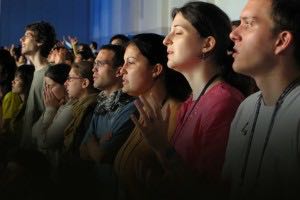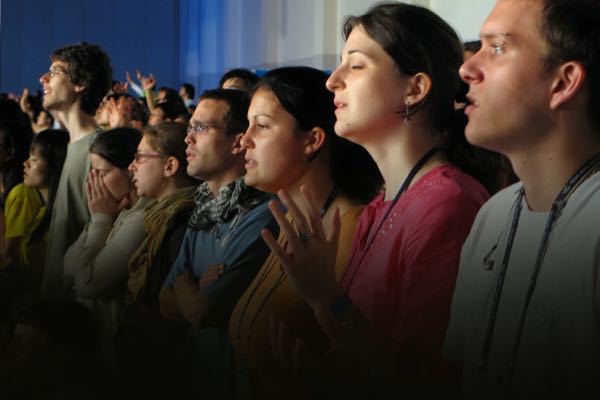
While more and more people say they no longer identify as Christians, the ranks of atheists and agnostics are not growing in equal percentages. During the same seven year span, as Christian affiliation dropped by 7.8%, those claiming an atheist affiliation only grew by 1.5%. So where did all the Christians go? They went to the ranks of those claiming no affiliation with any established Christian denomination or belief system (a category affectionately called, “the nones”). Importantly, those who no longer claim a Christian attachment, have not yet jumped in with the atheists or agnostics. They haven’t even jumped in with other religious groups (such as Jewish, Muslim or other believers). This is an important reality for all of us who seek to make the case for Christianity. We sometimes mistakenly think our culture is becoming more and more atheistic. It isn’t. Instead, it’s simply becoming less and less Christian.
People are not nearly as resistant to the existence of God as the more liberal, atheistic media would like us to believe. In fact, 92.9% of the country rejects atheism and is open to the existence of God in one form or another. We are a country of theists, even though we might be divided on which form of theism (or deism) is true. That’s why the case for Christianity is more important than ever.
Those who believe in the existence of God, yet reject Christianity, can still be reached for Christ. I sometimes think this group of “nones” has rejected their experience in the Church rather than their belief in Jesus. That may simply be a reflection of the sad, non-evidential nature of the Church rather than a reflection of the strong evidential nature of Christianity. Some of those who have left our ranks may never have heard anything about the evidence supporting the Christian worldview in all the years they were attending church with us. My own anecdotal experience, as I speak at churches around the country, supports this uncomfortable hypothesis. Most churches are still uninterested in making the case for Christianity, while more and more Christians want to know why Christianity is true. Those who believe in the existence of God, yet reject Christianity, can still be reached for Christ. Share on X
Now is the time to make the case for the reliability of the New Testament, the historicity and Deity of Jesus and the reasonable inference of the Resurrection. People are still hovering in the “nones” category, open to the existence of God, but skeptical of their past experience in Christianity. Now is the time to show them a new way forward and a reasonable path to belief. The reasonable, evidential case for Christianity is more important than ever.

J. Warner Wallace is a Dateline featured Cold-Case Detective, Senior Fellow at the Colson Center for Christian Worldview, Adj. Professor of Christian Apologetics at Talbot School of Theology, Biola University, author of Cold-Case Christianity, God’s Crime Scene, and Forensic Faith, and creator of the Case Makers Academy for kids.
Subscribe to J. Warner’s Daily Email
J. Warner Wallace is a Dateline featured cold-case homicide detective, popular national speaker and best-selling author. He continues to consult on cold-case investigations while serving as a Senior Fellow at the Colson Center for Christian Worldview. He is also an Adj. Professor of Christian Apologetics at Talbot School of Theology, Biola University, and a faculty member at Summit Ministries. He holds a BA in Design (from CSULB), an MA in Architecture (from UCLA), and an MA in Theological Studies (from Gateway Seminary).
































